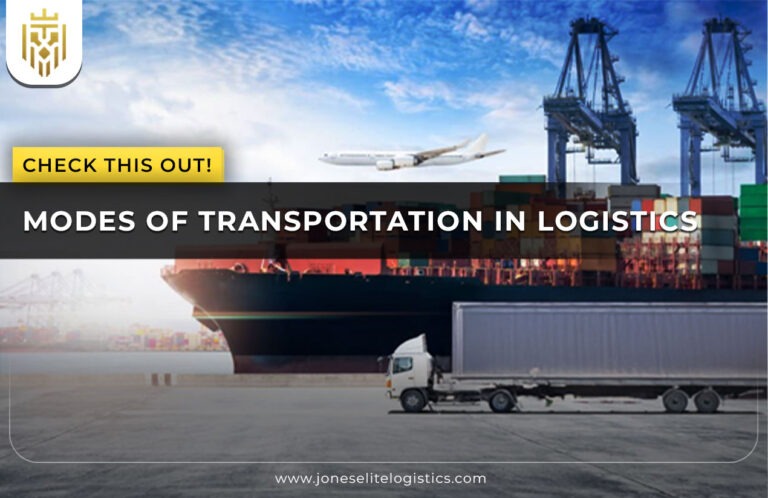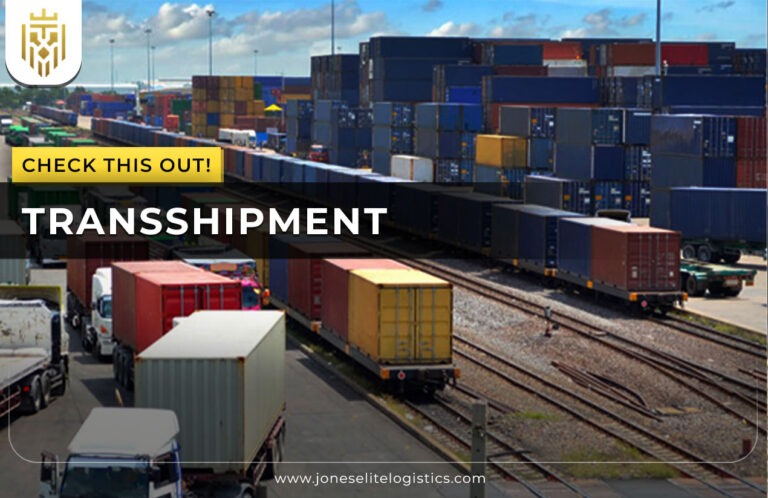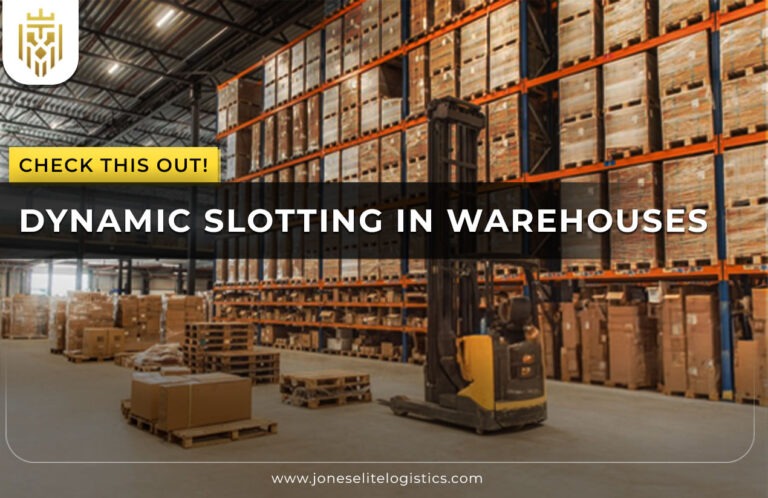What is Aviation Logistics?
Aviation logistics is a specialized form of logistics where freight is received, checked with proper handling, and then transferred from point A to point B via aircraft through air transportation. The aviation industry relies on efficient logistics processes to manage cargo movement across the global supply chain.

Importance of Aviation in Logistics:
Aviation is preferred as a safe delivery option for transporting high-value or perishable goods over long distances in the transport industry. It aids international business by delivering goods on time, cutting transit times, and connecting isolated or landlocked countries to the global market. Compared to other modes, aerospace logistics ensures faster, damage-free delivery, enhancing logistics supply chain value and efficiency of the aviation sector.
Components of Aviation Logistics:
Aviation Logistics comprises several components that ensure efficient cargo movement, safety, and overall operational effectiveness. They include:
Demand Forecasting:
Demand forecasting is the process of predicting variations in cargo volumes during the year and optimizing the aviation supply chain, including inventory management and resource allocation, reducing costs and improving service quality.
Ground Support:
Ground support ensures smooth travel by managing aircraft luggage, transporting goods to and from the airports with luggage carts, ensuring turnaround times are minimized and enhancing supply chain management. Efficient aviation operations depend heavily on ground handling services.
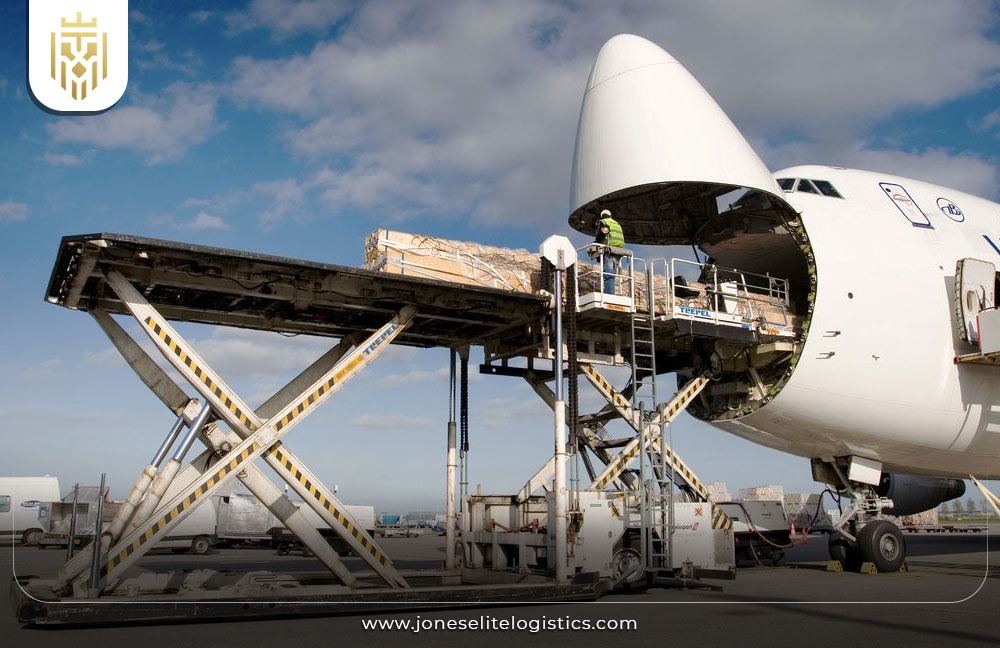
Airport Operations Management: (activities in airport)
Airport operations management stands as the key toward maintaining the airport’s smooth and efficient functionality, as it manages air traffic control, security, goods flow, and facility maintenance, ensuring efficient airport operations and contributing to the aviation logistics industry.
Customer Service:
Customer service deals with the interactions between customers and the aviation logistics services, resolving issues and ensuring a pleasant trip, which is crucial for customer satisfaction and loyalty, a key aspect of the aviation industry.
Types of Services in the Aviation Logistics Sector:
Air cargo handling services help manage cargo to reduce damages and time taken in the movement of goods within the airport. These services are essential in the aviation aerospace logistics, ensuring the efficient handling of air cargo in the logistics supply chain.
Air Cargo Handling Services:
Air cargo handling services are involved in cargo loading, offloading, sorting, and securing at airports, ensuring the smooth transportation of goods through the airport.
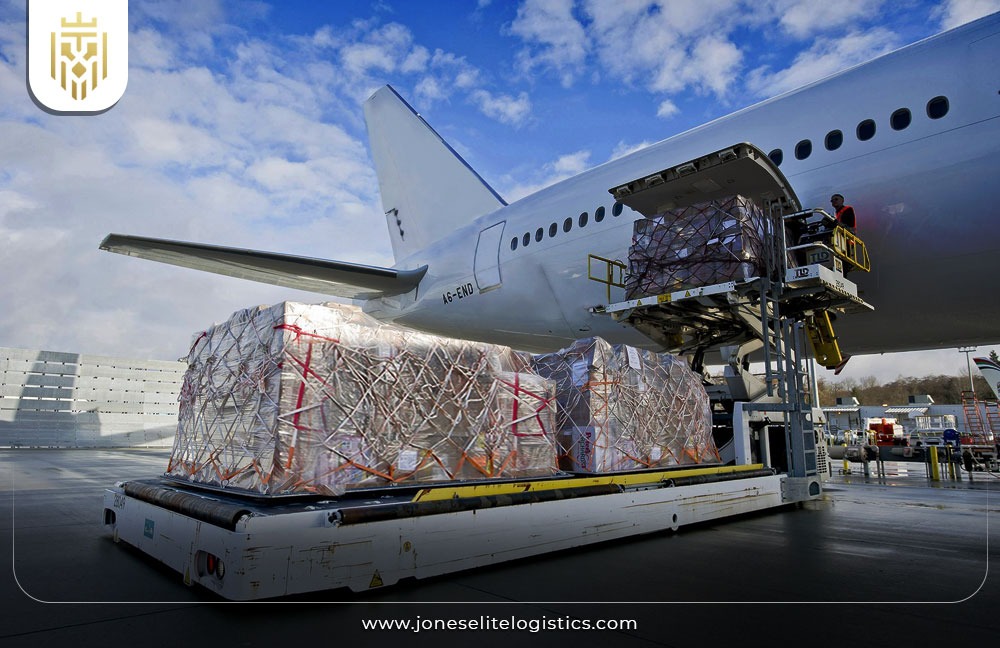
Off-Airport Cargo Terminals:
Off-airport cargo terminals such as those at Cologne Bonn Airport and Düsseldorf Airport, are located off airport land, where they handle, store, and transport cargo via air transport. These terminals assist in reducing airport traffic and increasing logistics capacity.
Trucking Services:
Aviation logistics trucking services move cargo between airports or from an airport to a warehouse and finally to the end consumer. This service strengthens the aviation aerospace supply chain by linking air cargo with road transport solutions, ensuring timely last-mile connectivity and efficient movement of consignments in the global logistics supply chain.
Warehousing Services:
Warehousing services in aviation logistics provide storage and protection for unshipped products, playing a pivotal role in managing the aviation supply chain, including procurement and inventory. Efficient aviation supply chain management relies on strategic inventory management and proper warehousing Inventory facilities to optimize operations in the aviation sector.
Challenges of Aviation Logistics:
There are several issues affecting aviation logistics, and solving them is important to guarantee the stability of processes in the aviation aerospace industry.
Fluctuations in Fuel Prices:
Fuel costs heavily influence air freight costs, requiring adaptability in pricing strategies and operations to maintain profitability in the aviation logistics industry. The aviation industry must innovate with fuel-efficient aircraft to tackle fuel price volatility and maintain the stability of the global supply chain.
Rising Threats from Cybersecurity Breaches:
Cyber threats can disrupt aircraft operations, leading to data losses. The aviation industry requires robust cybersecurity measures to safeguard the global supply chain.
Industry experts recommend investing in cutting-edge cybersecurity solutions to enhance the safety and reliability of aviation operations.

Effects of Global Conflicts on Aviation:
International conflicts limit airspace use, heighten security threats, and changes to global trade routes. Such conflicts alter trade routes, causing delays and increased costs.
Insufficient Airline Facilities and Resources:
Lack of infrastructure, cargo capacity, limited aircraft maintenance, and inadequate human resources slows down logistics. Investment in technology, capacity, and staff development is needed to increase productivity and service quality. Advancements in aviation logistics industry practices can address these gaps, ensuring the smooth functioning of airport operations.
Latest Technologies to Enhance Aviation Logistics Performance and Efficiency:
The aviation industry is applying advanced technologies, which are crucial in the global aviation logistics supply chain, providing innovative solutions to industry challenges.
Blockchain Technology:
Blockchain provides secure and efficient documentation for the aviation industry, enabling the international air cargo association to ensure safe cargo handling and reliable record-keeping methods for improved operational efficiency. Adopting blockchain strengthens trust and transparency across the aviation supply chain, making air freight processes more streamlined.
![]()
Artificial Intelligence:
AI is used for predictive analytics, demand forecasting, and optimizing aviation operations such as aircraft maintenance, inventory, and routes, boosting supply chain management professionals’ efficiency. AI-driven solutions in the aviation logistics industry are revolutionizing decision-making and enhancing the efficiency of the aviation supply chain.
Internet of Things:
The Internet of Things (IoT) transforms aviation logistics by providing real-time data on consignments, tools, and climate, improving logistics visibility and efficiency. IoT-powered devices are enhancing operational visibility, making the aviation supply chain more adaptive and reliable in the aviation logistics industry.
FAQs
1) What is Aviation Logistics?
Aviation logistics is a specialized form of logistics where air cargo is received, checked with proper handling, and then transferred from point A to point B via air transportation, ensuring efficient and reliable delivery within the aviation industry.
2) What are the Components of Aviation Logistics?
The components are demand forecasting, ground support, airport operations management, customer service, and baggage handling, all needed for efficient and reliable aviation operations in the global supply chain.
3) What are the Challenges of Aviation Logistics?
Some risks are changes in fuel prices, cyber risks, effects of war, and limited airline amenities and infrastructure, which hinder business operations and affect the overall efficiency of the aviation logistics supply chain.
4) What is the Importance of Aviation in Logistics?
Aviation is important for the rapid and efficient movement of people and goods over long distances, for commerce, for time-sensitive freight, for reaching out to isolated places, and for making the supply chain and economic development faster, adding significant value to the logistics and transport industry.



